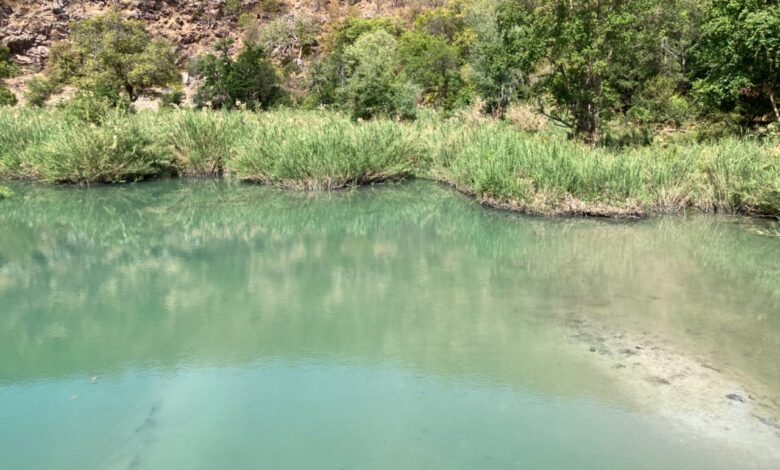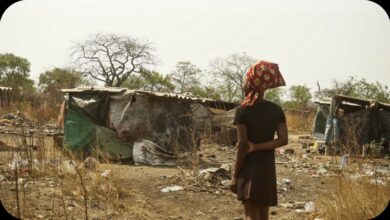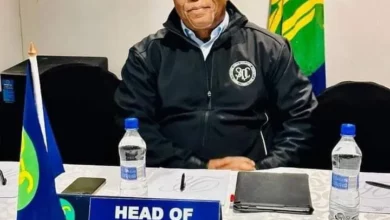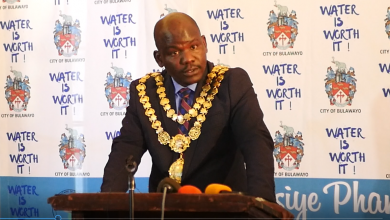‘Mining companies close operations but Deka water still contaminated’

Some mining operations that were contaminating the Deka River in Hwange, have reportedly shut down although the water situation has not improved significantly.
Deka River, one of Matabeleland North’s major rivers and a tributary of the Zambezi River, was heavily polluted with metals, industrial pollutants released by local and foreign-owned coal mining as well as power generating companies, compromising the health of thousands of villagers.
Situated a few kilometres from Hwange Town, Deka River supplies water to villages such as Zwabo Mukuyu, Mashala, Shashachunda, Kasibo, Mwemba, and flows all the way to Zambezi River.
Over the years, pollution from the operations of Hwange Colliery Company Limited (HCCL) and Chinese companies licensed to mine in its catchment area, had caused devastation to Deka.
Village head of Zwabo Mukuyu Village in Hwange Tshokwani Pinos Shoko, said the mines that closed on the banks of the Deka River were not due to pressure from officials or the mining heads choosing to do what is right.
“The contracts for the Chinese companies ended – not that they closed because of pressure but contracts ended,” Shoko said in an interview with CITE.
As for improvement of the water situation, the village head said a non governmental organisation – Amalima Loko had built a borehole that was yet to be fitted with pipes at the time of the interview.
Shoko said so far this would make the number of boreholes available in Zwabo Mukuyu Village and surrounding villages five, including the one he had built in his homestead.
An environmental activist, Daniel Sithole, affiliated to Green Shango Environmental Trust, a Hwange-based environmental organisation, said although positive changes take a long time to be seen, “the discoloration of water has improved, the water is now clear.”
“The discolouration of water was very minimal,” he said in November last year.
On what officials had done to alleviate the siatuation, Sithole said: “To be honest with you nothing was done to improve the situation.”
“Only one open cast mine along the river closed operations and I also suspect that that is due to the low water table ACID Drain mining is not pushing the heavy metal condensed water out of the pits,” he noted, adding that since open cast mining had stopped, “waste had reduced a bit.”
Sithole said the Chinese run mining companies, Zimberly Investments had relocated to a power station while Sunrise Chilota was not fully fledged, operating at a lower scale.
“There is now too much small-scale mining caused by amakorokoza,” said the environmentalist.
He added that the boreholes that were drilled by Hwange Colliery Company were in use by the locals but “ sadly these are not solar powered but manual.”
Sithole also added that due to the damage of the mining operation for locals, he was doing research for his Master’s ‘Dissertation on the impacts of fossil fuels along Deka River.
The Environmental Management Agency (EMA) Matabeleland North Provincial Environmental Manager, Chipo Mpofu-Zuze said she could not comment at the moment as she was enaged with other work in the province.
“I am very busy in Binga revamping systems. We have to capacitate workers to do mandatory billing. I am up to my neck, let;s wait until my schedule is a bit relaxed – I would love to help. Please wait or I may end up putting unnecessary pressure on my officers,” she said.
“If you can be doing another story then we can come to this one after.”
Domestic and wild animals were also not spared by the contamination of Deka River, amid concerns over poor monitoring by EMA.
Some villagers have over the years suffered from skin diseases, stomach pains and diarrhoea after consuming the water.
Aquatic life has also succumbed to the pollution with fish deaths being recorded over the years.
An investigation by CITE in collaboration with Information for Development Trust (IDT) undertaken last year, under a project meant to support investigative reporting focusing on the accountability and governance of foreign interests and investments in Zimbabwe and Southern Africa has established that water in Deka River is unfit for human and animal consumption.The Zimbabwe Power Company (ZPC), which operates thermal power stations in Hwange, has also contributed in a major way.
A sewer treatment plant was also contributing.
EMA revealed there are nine mining companies operating in the Deka catchment area, “which are directly and indirectly” contributing to the river’s contamination.
Tests proved contamination of the river.
Read more here: https://cite.org.zw/deka-river-matabeleland-norths-river-of-pain/






